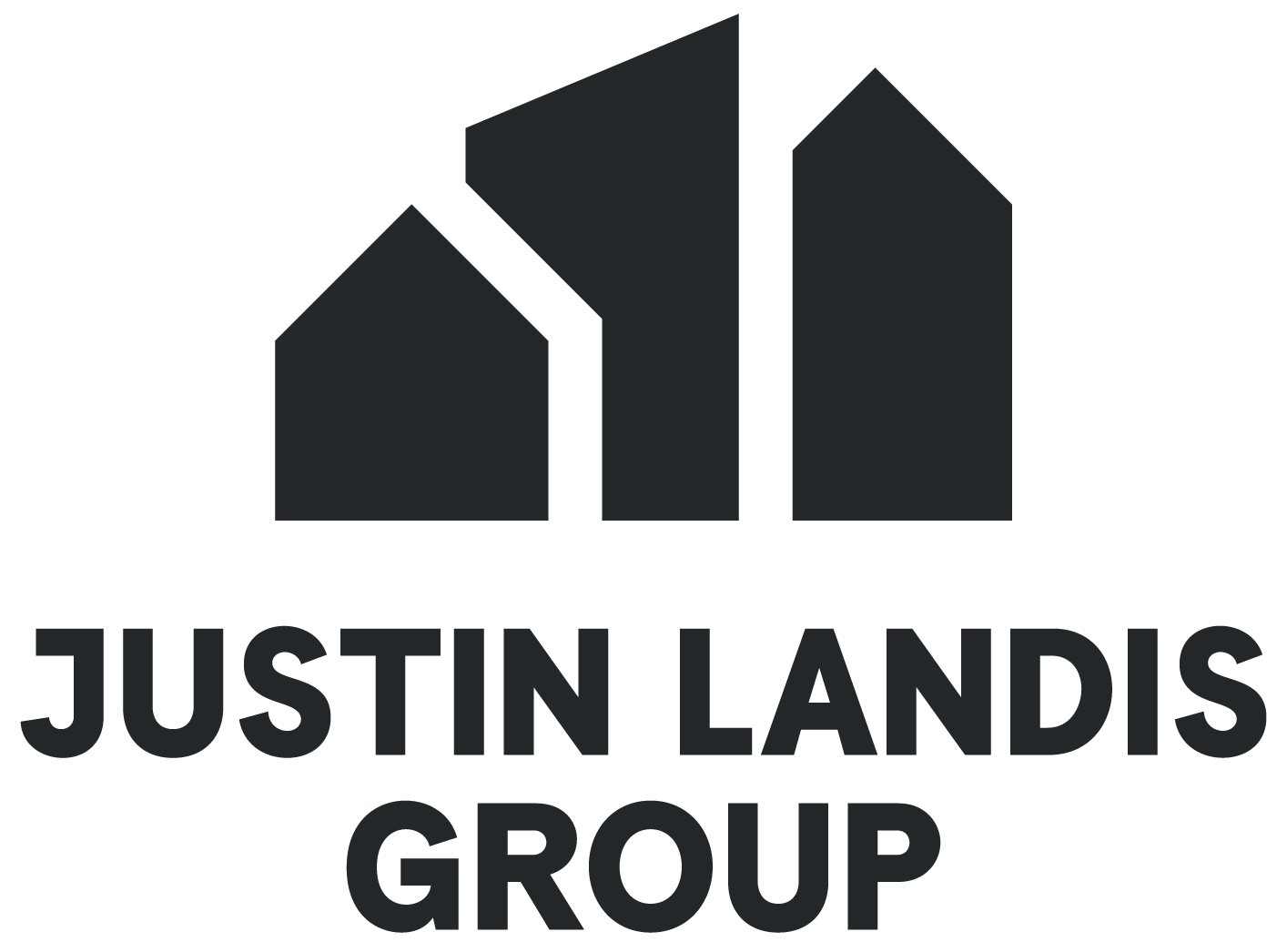The Top 5 Questions to Ask Your Home Inspector in Atlanta
A home inspection can keep you from walking into a money pit, or it can miss issues that'll cost you thousands down the road. The specific items you ask about while there make all the difference.
I've watched so many buyers just follow the inspector around, maybe take some pictures, and head home without really grasping what they're about to buy. Just last year, I had a friend who found out their house needed $15,000 in foundation work about six months after they moved in. The inspector had actually written about it in the report, but buried it in fine print that nobody explained.
If someone's house hunting in Atlanta, they'll face humidity that gets into everything, and a lot of houses built when electrical codes were way different. Moisture builds up under houses, wiring hasn't been touched since Kennedy was president, and those beautiful old windows basically invite the rain inside. Your inspector will look at all this, sure. But if you don't ask them to break it down for you, you might miss what it actually means for your wallet.
Before asking about specific parts of the house, though, there's something else worth knowing about - and it's not the roof or the foundation. It's actually about who's handling the inspection.
Check Your Inspector's License and Insurance
It feels awkward to ask about licensing. You're about to hire someone, and the first action you take is basically to card them. But I've seen what happens when people don't check, and it gets expensive fast.
Georgia started requiring licenses after some pretty bad situations. I know of one inspector who walked right past foundation cracks that ran the entire length of a basement wall. Another guy signed off on an electrical panel that had exposed wiring and burn marks. The families who hired them ended up paying $30,000, $50,000 to fix what should have been caught.
I've watched friends learn this lesson the hard way. You hire someone who seems confident, and they point out the obvious stuff - loose doorknob, dripping faucet - and you think they're thorough. Then, three months later, the quotes start coming in to replace your entire electrical system because they never mentioned the panel was from 1962. If they don't carry insurance, you're on your own for that $15,000 when the "minor moisture" they mentioned turns into a flooded basement.
Look, I get why people hesitate in Atlanta right now. Everyone's trying to close fast, and you don't want to seem high-maintenance. It's a phone call. Most inspectors have their license number memorized - they'll rattle it off without blinking. The experienced ones actually seem happy you asked. They'll tell you about their insurance limits, maybe mention they just finished a certification course.
The ones who get defensive or start hedging tell you something. I had one guy tell me licensing was "just bureaucracy," and his twenty years of experience mattered more. Maybe so. But I wasn't about to gamble my house on it.
What Your Home Report Should Mention
I've been in enough Atlanta home sales to see how differently inspectors work. Some spend three hours checking every system, while others are done in 45 minutes. I've heard of buyers near Decatur whose AC died six months later because the inspector barely looked at it. That's $8,000 for a new system that someone paying attention would have flagged.
Before you hire anyone, ask to see what their reports look like. I've seen everything from basic checklists - just checkboxes on a form - to detailed write-ups with photos of every little issue. When you negotiate repairs with the seller, those photos and detailed descriptions make all the difference. Sellers' agents will pick apart vague statements. But they can't argue with a photo of a cracked heat exchanger.
Different Atlanta neighborhoods need inspectors who know what to look for. If you're buying one of those 1920s bungalows in Grant Park, there's old wiring that might still be live behind modern-looking outlets. I've been in homes where the cast iron pipes looked solid during inspection but failed that first cold snap. Then you have newer builds in Buckhead where builders rushed through, missing insulation in walls, AC systems that were never set up properly, and water running toward the foundation because they graded the lot wrong.
Here's something that catches people off guard - check what your inspector won't look at. Some won't touch septic systems. Others skip pools unless you pay extra. I've heard of buyers who moved in and found their pool pump was broken. Nobody had even opened the equipment panel during inspection. That was a $5,000 shock they weren't expecting.
Even after you close, a solid inspection report helps you plan ahead. Mine became my home maintenance schedule - it told me the roof had maybe seven years left, when to service different systems, and what to watch for. It's been four years, and I still reference it when something comes up or when I'm setting aside money for repairs.
Why You Should Be at the Inspection
During home inspections, it's common to see inspectors point out tiny foundation cracks that are barely visible. When they take out a ruler to measure and explain why something that small won't affect the structure, it makes sense in a way that reading about it later just wouldn't.
Buyers should really show up for these inspections. Over the years, I've seen that people negotiate way better deals because they ask questions while they are there. Sometimes buyers worry about being in the way. Most inspectors seem relieved when owners show up. It makes their life simpler when you understand what they're looking at.
I've heard of instances where inspectors tried to talk clients out of attending. That's uncomfortable right away - it seems like they have something to hide.
For repair negotiations, presence during inspection makes such a difference. If you were there when the inspector measured that basement wall crack - saw it was maybe an eighth of an inch, heard how it's been stable for years - you're not going to panic. But if you're just reading "minor settlement crack in basement wall" on paper, people get three contractor quotes for foundation repairs they don't actually need.
The houses in Atlanta are all over the map, construction-wise. Grant Park houses from the twenties have balloon framing and original plaster. Newer townhouses in Buckhead from 2015 have all the modern engineering. What's funny is that those old balloon-framed places shift and settle after a hundred years in ways that would make you nervous if you saw it in new construction. But it's completely normal. You'd never understand that distinction without being there to hear your inspector explain what's typical for the house you're actually buying.
Home Problems That Are Common in Atlanta
I've been working with Atlanta properties for years, and the humidity here gets into places you wouldn't believe - it sneaks between siding gaps, creeps under window sills, works its way into wall cavities. Before you know it, you have mold growing behind walls and in crawl spaces. An inspector who knows Atlanta will go directly to those spots. Someone less familiar might walk right past moisture building up in bathroom exhaust fans or behind kitchen cabinets.
After seeing hundreds of Atlanta homes, I can tell you that newer inspectors usually miss damage that's been slowly developing. Sure - they'll see obvious water stains. But there's hidden damage in places only someone who's worked here long enough would think to check - like attic insulation near bathroom vents, those soft spots in subfloors along exterior walls, or certain discoloration patterns on basement concrete. And our clay soil - that's a whole different story. It swells when wet, shrinks when dry, and over time, it shifts foundations in ways that look harmless at first. Then homeowners end up with repair bills between $8,000 and $15,000.
Georgia termites never let up in this climate. An experienced inspector will spot those subtle mud tubes running up foundation walls or recognize termite droppings that someone else might dismiss as regular dirt. When you're interviewing inspectors, ask them about Atlanta-specific problems. If they're experienced, they'll start naming neighborhoods - like certain parts of Decatur where drainage has always been an issue, or East Atlanta spots where the red clay causes serious foundation settling.
Since the recent flooding, I've completely changed how I look at drainage. Houses that never had water problems before are suddenly dealing with water coming in. I inspected a place in Brookhaven that sits just slightly downhill - it used to be fine, maybe a little water during spring rains. Now, the basement floods twice a year. So I'm checking grading angles much more carefully (you need that 6-inch drop over 10 feet) and examining gutter systems while watching how stormwater would flow during the heavier storms we're getting now.
What Should You Do After the Report
When problems show up during an inspection, it doesn't automatically mean walking away. What matters more is figuring out the best strategy once you're holding that report with all its red flags.
I've noticed that buyers who've been through this before tend to brace themselves for bad news ahead of time. Someone sees an HVAC system from 2008 or some weathered deck boards, and suddenly, they're ready to bail on a perfectly solid house. They're mixing up "this could literally burn the house down" with "yeah, this will probably need replacing in a few years."
The inspectors who really know their stuff will help buyers see the difference. Once people understand what's actually urgent versus what's just on the eventual to-do list, the panic over every detail stops.
When you're up against three other offers in Atlanta, sometimes you have to get creative. Maybe instead of asking sellers to fix everything, you negotiate for an $8,000 credit and handle it yourself. This flexibility can be what gets you the house. Georgia gives buyers 10 business days for inspection stuff in most contracts, though I've seen people negotiate for less when they really want to compete. Whatever time is available, make it count.
That foundation issue that sounds terrifying could just need three piers installed for around $4,800 - not some massive reconstruction project. Water damage might just be some rotted subfloor under a toilet that'll run maybe $1,200 to fix. I always tell people to get contractor quotes within a couple of days of getting the report. Then you can actually see if the repair costs make sense compared to what the house is worth.
What You Pay for Home Inspections
Atlanta's inspection market shows what buyers are paying for. Quality inspections in my experience cost somewhere around $400 - 600, and that gets someone who'll go through the whole house and write up everything they find and actually answer calls afterward. Some inspectors throw in everything together. But I've noticed others will charge separately for radon testing ($125 - 150) or sewer scopes ($250 - 350).
North Georgia has all this granite underground, and it gives off radon gas. I remember when I checked out this house in Decatur, where the basement readings were way higher than anyone expected. A decent inspector will tell buyers if they're in one of those areas where it's worth the extra test. With those old houses in Virginia-Highland with the original clay pipes, I'd definitely get the sewer camera - saw someone skip that once and end up replacing the whole line after tree roots broke through. Cost them eight grand.
Here's what I've noticed - legitimate inspectors won't try to sell you repairs for stuff they find. Makes sense when you think about it. If someone's making money off fixing problems, they might start seeing foundation failure where there's just normal settling. I watched that happen to a friend who ended up with a $20,000 repair quote that turned out to be unnecessary.
The market right now makes it tempting to rush through inspections or skip them entirely. Sellers obviously prefer offers without inspection contingencies, and sometimes agents hint that you might win if you go easy on the inspection. But I've seen what happens when people do that - termite damage hiding in crawl spaces, old aluminum wiring that's a fire waiting to happen, those polybutylene pipes that fail without warning. Hard to negotiate repairs when you don't even know they exist.
Different properties need different attention. For a 1920s bungalow in Grant Park, I'd want someone checking for lead paint and old knob-and-tube wiring. But new construction in Alpharetta is more about making sure everything matches the warranty and catching any construction shortcuts. A quality inspector will explain what makes sense for your specific house instead of just running up the bill with every test they offer.
Moving to Atlanta?
Home inspectors enjoy working with buyers who ask questions and want to learn about the house. When you're curious and engaged, they tend to open up more - I've watched inspectors explain details they might normally skip over, show buyers maintenance tricks, even point out small issues they'd usually just write on the report. Some of my clients have ended up getting what felt like a mini-course in homeownership just by being interested and asking thoughtful questions during their inspection.
When you walk into closing feeling prepared, it makes such a difference. Like when an inspector tells you the HVAC is 15 years old - it helps to know if that means you should budget for a replacement soon (could run you $5,000-8,000) or if you have some breathing room. The same applies to understanding which repairs need to be fixed right away and which ones can wait. I always tell my clients to treat the inspection like their chance to get to know the house.
If you're thinking about making Atlanta your home, each neighborhood here has its own personality - Virginia-Highland feels completely different from Midtown, and both are nothing like the vibe in Grant Park.
If you're trying to figure out where you'd fit best, whether that's a classic bungalow with original hardwood or a newer place with city views, the Justin Landis Group knows these neighborhoods inside and out. We'd love to help you find your spot in Atlanta.








